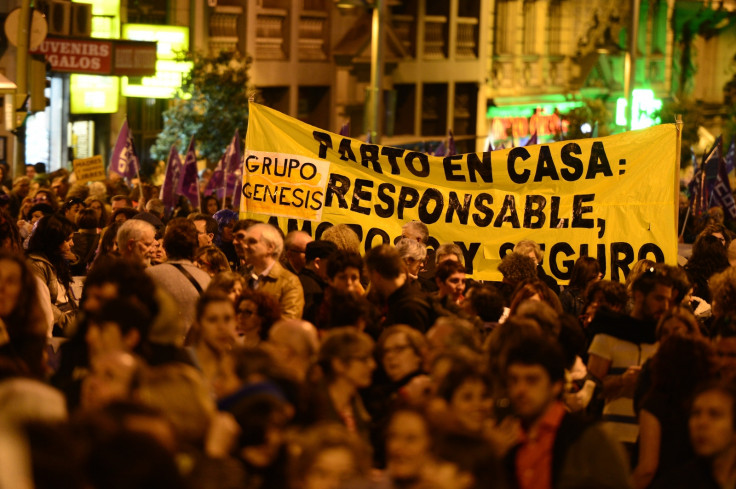Spain: Abortion Restriction Plans Scrapped After Women's Rights Backlash

The Spanish government has scrapped plans to restrict the availability of abortions because there was no consensus for change, the prime minister has announced.
The government had pledged to restrict abortion to only cases of rape or serious health risks but the proposal triggered widespread denunciation, with critics saying it would put Spain back 40 years in terms of women's rights.
Prime Minister Mariano Rajoy said his government had battled to get wide agreement on the changes but failed.
He said abortion was an issue that "affected the profound and personal convictions of all citizens" and needed to be taken seriously.
"We can't have a law that will be changed when another government comes in," Rajoy added.
He said the government would seek instead to change the law — which allows abortion without restrictions in the first 14 weeks of pregnancy — so that 16- and 17-year-olds will once again have to obtain their parents' permission.
Rajoy's Popular Party, which has long sided with the Roman Catholic Church on moral and social issues, had made the change one of its main promises in the 2011 vote that brought it to power.
Local media said the government was ditching the plan because of fears of a voter backlash in municipal and general elections next year.
On Sunday, several thousand people held an anti-abortion protest in Madrid, with some warning they would withdraw their vote from the Popular Party if the government backtracked on the abortion restrictions.
"If they don't do it, many voters will punish them," said Gador Joya, a spokeswoman for the group Right to Life, one of the organisers of the marches in Spain's capital.
Abortion was first decriminalised in Spain in 1985, in the cases of rape, mental or physical damage to the mother or in cases of a malformed foetus.
In 2010, the previous Socialist government in the country changed the abortion law to allow women to terminate unwanted pregnancies on demand within 14 weeks, or up to 22 weeks in cases of severe abnormalities.
These changes place Spain in line with much of Western Europe and around 110,000 abortions are carried out every year in the country.
Most European countries offer abortion on request, according to the World Health Organisation, with 88% allowing the termination of pregnancies if the foetus is thought to be impaired or in cases of rape or incest.
The Spanish Justice Minister, Alberto Ruiz Gallardón, who spearheaded the controversial abortion plans, announced his resignation at a press conference in Madrid on Tuesday evening.
© Copyright IBTimes 2024. All rights reserved.






